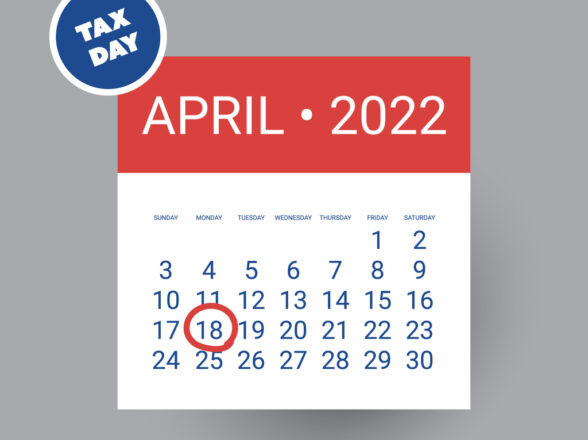Blog
How to Optimize your Company Insurance Benefits when Changing Jobs

As a job seeker, you are always looking for the best benefits package to jump on. But often, it’s not just about salary and vacation time when considering if a company will be right for you, but also what type of insurance they offer. When comparing different jobs, don’t forget to do your research on their health insurance plans! Read on to learn how to optimize your company’s insurance benefits when changing jobs.
Optimizing Your Company’s Insurance Benefits When Changing Jobs
Before changing a job, it’s crucial to understand what you will lose and what you could gain. By understanding the risks, you can better prepare for them before they happen.
As your company’s HR department is aware of all insurance coverage options available to their employees, it is advisable to engage them to understand how changing jobs might impact your overall benefits package.
In addition to considering both current and future health care needs when reviewing new offers, also consider that moving from one state or county (or even just switching companies) may change whether certain types of medical procedures are covered under the plan.
Some employers will also provide compensation for any additional expenses incurred due to the move, such as travel and lodging costs. In other instances, employees may be required to pay these types of expenses themselves but can deduct them from their taxes at the end of the year.
In some cases, certain benefits are only available when switching jobs with another company in your state – so make sure not to forget to factor this into your decision-making process too!
Ways to Optimize Your Company’s Insurance Benefits Before You Leave
Below are various ways you can use to optimize your company’s insurance benefits before changing a job:
Is There an Open Enrollment Period
An open enrollment period helps you avoid having to wait until the end of your current coverage before purchasing a new one. So if you’re an employee, make sure to check with HR about when open enrollment starts at your company and how to go about it.
In most cases, open enrollment will be within a few months after starting your new job. If there is no open enrollment period available at that time or if it’s not soon enough for you to make changes before switching jobs, consider waiting until then to avoid paying more than necessary and missing out on the coverage you might need.
How Will You Get Covered During This Time?
COBRA (Consolidated Omnibus Budget Reconciliation Act) can be a temporary option for keeping medical insurance going until you find another job that offers benefits if you are between jobs or already lost yours. However, ensure you understand all the requirements needed for COBRA coverage.
Understand What the New Company Insurance Benefits Entail
Different companies offer different benefits, and the new company’s benefits may offer you more than your old employer. Ensure you keenly read through your contract to find out what your new employer offers and compare it to the benefits your old company offered you.
The employer should provide more information about what types of coverage your old company provides and how they compare to those offered by other employers. Your new employer should also provide more information about what your old company provides types of coverage and compare it to those they are offering.
What Insurance Benefits are Typical? (Optimize)
Typical benefits include:
- Medical insurance coverage for both the employee and their dependents.
- Dental insurance.
- Vision or optical insurance.
- Disability/life insurance.
- Long-term care coverage.
Another common benefit is prescriptions through an indemnity plan or mail order program with a pre-determined co-pay amount per prescription filled based on tier level.
Types of Company-Sponsored Insurance to Optimize
Companies often provide a variety of benefits to their employees. These types of company-sponsored insurance are often tax-exempt for the employee. When you leave employment with one employer due to a job change, it can be beneficial for you to explore these different options. Below are types of company-sponsored insurance:
Life Insurance
A life insurance cover is one of the most vital benefits to have before you start your new job. With life insurance coverage, you and your family can keep up with the high cost of living even after you are gone.
Companies offer both individual and group insurance for their employees. Under a group insurance coverage, the company pays a fixed premium which is then used to cover the employees, their spouses, and dependents. Individual insurance will be more expensive than group coverage with identical benefits because it only covers one person’s life.
You may want to ask your employer how much they are charging for group or individual life insurance to determine what coverage you should get. Also, suppose an existing policy at your previous company matches the new company’s plan already in place. In that case, you might not need additional life insurance from them as well.
Before signing any contract or making any final decision on which type of coverage would work best for you and your family, make sure that you take time and read through all the paperwork carefully, so there are no surprises.
Health Insurance
Company benefits are often overlooked when people are changing jobs because they might not want their current employer to know they’re looking elsewhere. However, one of the most important things you need to have a clear understanding of before making any decisions about your career change is what healthcare insurance coverage will be available for you in the new position.
Health insurance is a flexible policy that can be used for any medical costs, including surgical expenses and dental care. One advantage to health insurance is that it reimburses the insured person directly, so you do not have to worry about paying out-of-pocket or spending time trying to settle bills with your provider.
Healthcare insurance plans will vary from basic to more extensive depending on the company. There are also different levels of coverage within each plan, so it is important to engage the human resources department to enquire about what health care benefits may be available for you in a new job position.
Disability Insurance
Disability insurance covers you when you suffer an injury or illness that prevents you from working for a prolonged period. This cover keeps you going when you are unable to attend to your normal work routine.
Disability policies differ, so you should compare policies for the company you’re leaving. For example, long-term coverage will reimburse you between 60% and 80% of your salary for a specified period.
When changing jobs, ensure you understand how long you will have to wait before receiving benefits and if there are any exclusions to the policy in place. Take time to review policies and benefits with a licensed financial adviser.
Some employers offer short-term disability benefits to their employees through their employer’s health care plan. If this isn’t possible due to hectic schedules, it might be worth considering purchasing individual coverage.
Worker’s Compensation
Let’s say you have been hurt during normal working hours. Worker’s compensation provides wages and medical coverage when an injury has occurred. A worker’s compensation plan prevents an employee from suing an employer for injuries or illnesses that happened on the job.
However, if the injury or illness that occurred at work was not normal working hours, such as lunchtime, then it may fall under personal injuries/illnesses instead of worker’s compensation. It could also depend on whether or not you were participating in risky activities while off duty.
If you are changing jobs, it is important to consider what type of worker’s compensation plan your new employer has in place before taking a position with them.
Optimize Company-Sponsored Insurance Benefits
Insurance benefits for corporate employees are often overlooked when changing jobs. They will have to research and evaluate the company’s insurance benefits for them and their family to make an informed decision on whether or not they should quit.
In many cases, leaving a job that provides better insurance can end up costing more money because of higher premiums for individual health coverage later down the line. The key is understanding your options before making any hasty decisions!
Key Takeaway
When you are looking to change jobs, it can be daunting to decide what type of benefits package is the best for you and your family. Several things need to be considered to make the right decision. You want your new employer’s insurance plan to cover as much as possible while also being affordable and sustainable for your company. If you would like help optimizing employee benefits when making job changes or reviewing current options, pleaase contact us.

























































































